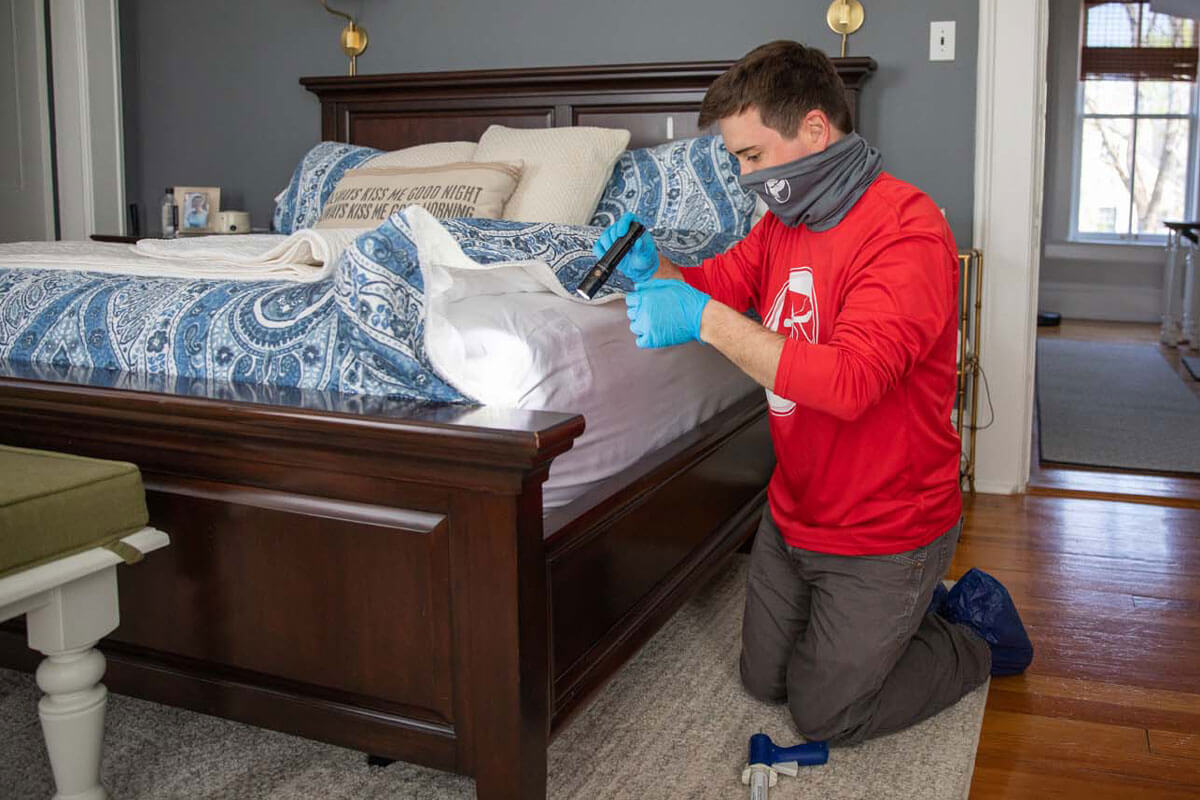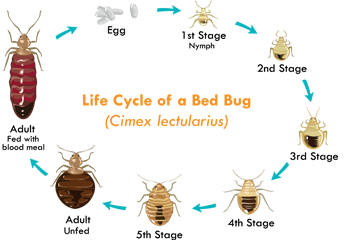Relied On Kings Pest Control Cincinnati OH: Specialist Services
Wiki Article
A Failure of the Different Kinds Of Insect Control Solutions
In the realm of bug control, a wide variety of methods exist to address and combat the presence of undesirable animals. As we browse with the varied landscape of parasite control options, recognizing the ins and outs of each technique becomes critical in determining the most reliable program of activity.Chemical Pesticides
Chemical chemicals are generally utilized in pest control to efficiently remove a vast array of insects and various other bugs. These chemicals work by targeting the nerve system of the pests, disrupting their normal functions, and ultimately resulting in their death. Using chemical pesticides has actually been a staple in the bug control market for decades due to their effectiveness and fast outcomes.
However, it is essential to use chemical pesticides with care as a result of their potential hazardous effects on the atmosphere and non-target species. Improper application or overuse of these pesticides can result in air pollution, harm to helpful pests, and resistance development in bug populaces. Consequently, it is vital to adhere to safety standards and policies when utilizing chemical pesticides for pest control.
Biological Control Approaches
Taking into consideration the prospective environmental effects and dangers related to chemical pesticides, biological control approaches use a more sustainable approach to handling bug populations. Organic control involves making use of all-natural adversaries, such as pathogens, predators, and parasites, to subdue bug populations. This method is frequently extra targeted, impacting only the particular parasite species while minimizing damage to advantageous insects, human beings, and the environment.

One benefit of organic control is its long-lasting efficiency. Once established, all-natural adversaries can assist manage pest populations continuously without the demand for duplicated applications of pesticides. Additionally, organic control is often extra cost-efficient and can help in reducing pesticide resistance in pest populaces gradually. In general, biological control approaches use a sustainable and eco-friendly option to pest monitoring.

Mechanical Parasite Control
Mechanical bug control involves the physical adjustment or removal of insects to handle their populaces effectively. This technique is commonly employed in conjunction with other bug control approaches for comprehensive insect administration. One usual instance of mechanical pest control is using traps to catch pests or rats. These catches can be established in strategic locations where pests are understood to dwell, assisting to minimize their numbers.
Another mechanical method is the use of barriers such as fencings, displays, or internet to obstruct bugs from going into particular areas. By literally avoiding bugs from accessing a place, the possibility of infestations or damage can be significantly lowered. In addition, hands-on methods like handpicking parasites off plants or frameworks can be effective for smaller-scale problems.
While mechanical bug control techniques can be labor-intensive, they offer a non-chemical choice that can be lasting and environmentally pleasant. By targeting insects directly, mechanical control strategies can help maintain bug populations in check without counting on pesticides.
All-natural Treatments
Utilizing all-natural remedies for parasite control provides a eco-friendly and lasting method to managing bug populations without turning to chemical treatments. Natural solutions include making use of substances stemmed from plants, minerals, or other normally taking place sources to hinder or eliminate bugs. As an example, planting particular herbs like basil, mint, or lavender around your building can ward off pests due to their strong aromas. Diatomaceous planet, a powder made from fossilized algae, can be made use of useful reference to combat bugs like ants, roaches, and bed bugs by dehydrating their exoskeletons.In addition, vital oils such as tea tree oil or neem oil have insecticidal buildings that can efficiently control bugs while being safe for the atmosphere. An additional all-natural solution is presenting valuable pests like ladybugs or hoping mantises to your yard to victimize unsafe parasites. By including these all-natural options into insect management techniques, individuals can reduce their dependence on artificial chemicals and promote a healthier, more well balanced ecological community.
Integrated Parasite Administration
Integrated Insect Management (IPM) is a comprehensive approach that incorporates different techniques to efficiently control pest populaces while reducing risks to human wellness and the atmosphere. IPM involves the integration of several insect control methods such as organic control, habitat adjustment, adjustment of cultural techniques, and making use of immune plant varieties. By making use of a combination of these strategies, IPM aims to reduce dependence on chemical pesticides, which can have negative effect on environments and human health.One trick aspect of IPM is the focus on prevention. By applying steps to protect against bug infestations before they take place, such as preserving correct cleanliness and securing entry factors, the need for reactive parasite control measures is minimized. Tracking and regular evaluations play a crucial function in IPM, enabling very early discovery of parasite problems and prompt treatment.
Verdict
To conclude, the this content different sorts of insect control remedies provide a variety of choices for effectively handling pest invasions. Chemical pesticides give quick removal yet may have environmental threats. Biological control approaches make use of natural predators to regulate bugs. Mechanical pest control includes physical obstacles or traps. Natural remedies use safe options. Integrated Insect Monitoring integrates multiple strategies for an alternative approach to pest control. Each technique has its own benefits and drawbacks, and choosing the most proper service depends on the particular bug problem at hand.Chemical chemicals are generally utilized in parasite control to successfully remove a large range of pests and other parasites.Mechanical insect control entails the physical manipulation or removal of insects to manage their populations effectively (Kings pest control services Cincinnati oh).Utilizing all-natural remedies for insect control uses a environmentally friendly and sustainable approach to handling bug populaces without resorting to chemical interventions.Integrated Pest Management (IPM) is an extensive strategy that incorporates numerous techniques to properly regulate pest solution services pest populaces while lessening risks to human health and the atmosphere.In conclusion, the various types of parasite control options use a variety of alternatives for effectively handling parasite invasions
Report this wiki page